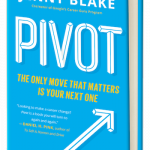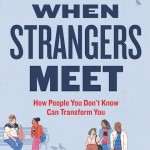Since its publication in January, Quiet: The Power of Introverts in a World That Can’t Stop Talking – writer Susan Cain’s examination of what it means to be introverted within a culture that prizes extroverts – has been one of the most talked-about books of the year.
And Cain – a self-described introvert whose happiest days, she recently told Convene, are the ones she can spend with her laptop and a cup of coffee – has found herself and her work the subject of dozens of international magazine, newspaper, television, and online stories. She is much in demand as a speaker, addressing audiences ranging from economists at the U.S. Treasury, to librarians at the American Library Association, to engineers at Google and Microsoft. And Cain is a superstar in cyberspace: The video of her presentation at TED2012 this past March, which inspired a standing ovation, reached the one-million-viewer mark more quickly than any other video in TED’s history.
That Quiet has resonated so deeply helps to underscore the points that Cain, a former corporate lawyer, makes in her writing and speaking: Although one-third to one-half of individuals are introverts, neither introversion nor the contributions made by introverts are well understood. Introversion, she writes, “is now a second-class personality trait, somewhere between a disappointment and a pathology.” But, “[s]ome of our greatest ideas, art, and inventions – from the theory of evolution to van Gogh’s sunflowers to the personal computer – came from the quiet and cerebral people who knew how to tune in to their inner worlds and the treasures to be found there.”
I talked with Cain about what her research and insight into introversion could mean for meeting organizers at a coffee shop in Manhattan, during a day filled with back-to-back interviews for the author. We didn’t have much time, and skipped the small talk, which was fine with Cain and a relief to me, I was surprised to find. One of the most common, and damaging, misperceptions about introverts, Cain writes in Quiet(ITAL), is that they’re anti-social. And during our half-hour talk, I found the author to be anything but that – Cain was thoughtful, warm, and refreshingly candid.
Does the fact that you are an introvert mean that you would have preferred to do this interview on the phone or by email?
Well, first of all, all introverts are different. For me, no. Having a one-on-one chat is pretty comfortable. But one of the definitions of introversion is that it has to do with how you respond to stimulation. And so introverts love environments that are just a little quieter. And so to me, talking one-on-one has always been a really comfortable form of socializing, because it is kind of a quieter, more intimate kind of socializing. Presenting to groups and that kind of thing is where I feel like, “Ooh, I am over my stimulation load here.”
What was it like for you to attend TED?
I think one of the reasons that TED asked me to present is that a lot of the people who attend that conference are introverts themselves. There are a lot of people in the tech industry, which attracts introverts, and people who are pretty introspective, who are attracted by ideas.
I was one of the first presenters and then I was there all week, and people were coming up to me afterwards and telling me their own stories because I had spoken so personally on stage. A lot of these people were really hyper-successful company founders, but they would tell me how they were introverts struggling in an extroverted world. And they said that having listened to my talk, they felt now they had permission to go back to their hotel rooms and chill a little bit, instead of feeling pressured to network from morning until night. I think that is something a lot of people crave. I actually always viewed networking as a series of one-on-one conversations, like the kind we are having now.
Large receptions are a fixture at many conferences. Are there ways that organizers can make them more comfortable for introverts?
I think having quiet areas – ones that are not, obviously, marginalized areas, but rather quiet areas that are cool and inviting – goes a long way. That was one of the things that was great about TED, actually. They had all of these different environments that you could be in. Some were noisy and some were not.
I recently had a meeting at Google’s office in Manhattan. And their office is fascinating, because they have a lot of people working in an open area, which I am generally opposed to. But they were really good about having all kinds of nooks and crannies all over the place where you could go and take your work. They had different cafés; some of the cafés were bustling and noisy, and some of them were quiet. They had a library where you could go and work, or you could go take naps. I think that that goes a really long way.
One of the great things about having written my book is that I now really feel a sense of entitlement to be who I am. And so I take the breaks that I need to.
Trends in the meetings industry are following, to some extent, the educational trends you write about in Quiet, including moving away from lecture formats to more collaborative environments. For example, meeting attendees may be asked to break into groups and discuss content. Is there a way to make that work for both extroverts and introverts?
I think introverts hate that stuff, honestly.
The thinking is that there is a lot of information now accessible online, but you go to meetings to interact with peers and solve problems by working with the content.
I don’t know. I guess one thing I would say to people planning meetings in this way is, have you ever really taken surveys to find out how introverts and extroverts feel about this? Because I can imagine some breakout sessions really being great, but also, I would predict that many introverts are sitting there thinking, “Oh, God, do we have to do this?” And people might feel annoyed, thinking, “I flew all the way here to get this information, and now I have sit and make conversation with someone next to me who doesn’t have the information to give.”
Another trend is to give people a lot of choice. If somebody wants to go into a roundtable environment, you offer that. If somebody wants to just go to a lecture, you offer that, too.
I think that is a great idea. My great takeaway from doing all of this research [comes from] an interesting experiment by psychologist Russell Geen. Geen gave introverts and extroverts math problems to solve with varying levels of background noise. The introverts did better when the noise was lower. And the extroverts did better when the noise was higher. We need environments where some places are noisy and some places are less noisy, so that everybody feels at their best.
One thing you write about is that in group work, ideas are usually reported more readily by extroverts. Can you recommend ways to balance that?
Well, I think there are things people can do. You can have everybody first write down what they think about a question, and have a forum where you then hear what everybody thought about beforehand. That way, introverts have time to think things through instead of having to rely on sort of the quick back and forth.
And also, I think people should make more use of electronic media. That is a great leveler. If you have people brainstorming online, you can’t really tell the difference between an introvert and an extrovert.
How do organizations communicate that it is okay to be quiet and thoughtful?
That is an interesting question. I think a lot of it has to happen through very subtle signals, things like how office space is designed. Is it designed so that the quiet places are seen as inviting and cool places to be, or are they off in the corner and dusty?
And also, it has to do with who are the leaders of the organization. We know from research that most companies groom extroverts for leadership roles. And yet introverts often deliver better outcomes when they are leaders. And so having introverts in prominent roles does a lot to convey that different personality types are welcome.
In Quiet, you advocate giving freedom to introverts to be themselves. Do you think that it’s counterproductive for introverts to go to a conference and follow a schedule from seven in the morning until 11 at night?
Oh, absolutely, I think introverts should not. Probably most extroverts, too, need a break, but introverts, for sure. I think you should pick the points of the day that are not going to be that interesting to you and go back to your hotel room, or get a cup of coffee by yourself, or whatever. You will feel so much more recharged at the end of the day.
There is no point in putting yourself into a situation where you are going to feel grumpy and overwhelmed – you will never be your best self. A lot of it is entitlement to take the breaks that you need.
Do you look forward to going to meetings?
Oh no, I never look forward to meetings. No, no, no. I look forward to getting together with friends. And as for the meeting, I might enjoy it once it is happening. But I don’t want to overstate that. What I would say is for introverts, they are much more likely to enjoy meetings and congregating when they are really into the topic and where they feel like they are with kindred spirits. .
From Quiet: The Power of Introverts in a World That Can’t Stop Talking
If we assume that quiet and loud people have roughly the same number of good (and bad) ideas, then we should worry if the louder and more forceful people always carry the day. This would mean that an awful lot of bad ideas prevail while good ones get squashed. Yet studies in group dynamics suggest that this is exactly what happens. We perceive talkers as smarter than quiet types – even though grade-point averages and SAT and intelligence test scores reveal this perception to be inaccurate. In one experiment in which two strangers met over the phone, those who spoke more were considered more intelligent, better looking, and more likable. We also see talkers as leaders. The more a person talks, the more other group members direct their attention to him, which means that he becomes increasingly powerful as a meeting goes on. It also helps to speak fast: We rate quick talkers as more capable and appealing than slow talkers.
All of this would be fine if more talking were correlated with greater insight, but research suggest that there is no such link.… A well-known study out of UC Berkeley by organizational behavior professor Philip Tetlock found that television pundits – that is, people who earn their livings by holding forth confidently on the basis of limited information – make worse predictions about political and economic trends than they would by random chance. And the very worst prognosticators tend to be the most famous and the most confident – the very ones who would be considered natural leaders.
MORE RESOURCES
Susan Cain’s website, thepowerofintroverts.com, includes an online community and a link to her TEDTalk on “The Power of Introverts.” For a video from Convene’s conversation, go to convn.org/susan-cain.



